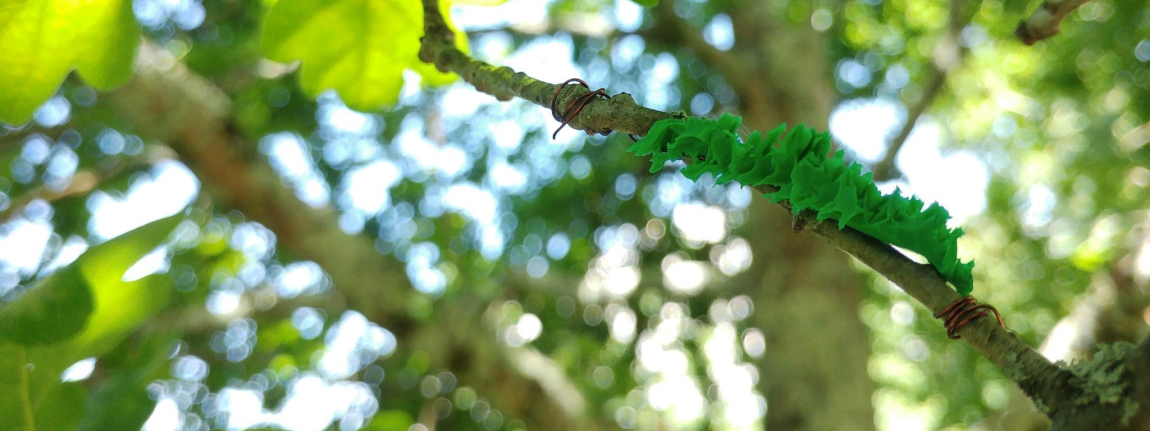The "TREE BODYGUARDS" project
Led by Bastien Castagneyrol, researcher in Ecology at the French National Research Institute for Agriculture, Food and Environment (INRAE), “TREE BODYGUARDS” aims at studying the effect of climate on the English oaks ability to defend themselves from insect herbivores, in order to forecast likely consequences of climate change.
Supported by the BNP Paribas Foundation through its Climate & Biodiversity Initiative, “TREE BODYGUARDS” particularly addresses the SDGs 4 “Quality Education” and 15 “Life on Land”.
What are the tree's natural defences?
Trees and forest ecosystems support several key functions for the delivery of ecosystem services such as wood product provisioning (furnishing, fuel, amenities supporting, paper or cardboard production) and climate regulation. However, a great variety of insect herbivores constantly attacks trees, which can cause major damages, a slowdown in their growth and sometimes their death. Trees have their own self-defence techniques but they also receive help from their “bodyguards”: the herbivores’ predators, such as birds, spiders and other insects.
Yet, would trees be able to maintain their regulation mechanisms – as well as their efficacy – in a world that would be 1 or 3 degrees warmer?
« We know the predators of the herbivorous insects. Facing climate change, the question is whether trees still can rely on their protection. »
A likely transformation of forest ecosystem in response to climatic change?
TREE BODYGUARDS mainly focuses on the effect of climate change on the English oaks resistance to insect herbivores, both by their own defence mechanisms and their “bodyguards” protection; in order to forecast likely consequences of climate change on oak-associated herbivore biodiversity as well as herbivores-enemies interactions, and by extension tree and forest health.
Therefore, the project name refers to one of its specific goals: determining which herbivore enemies protect trees from insect herbivore damage. To do so, it is necessary to assess the predation rate: by installing artificial caterpillars made of clay on oak trees and subsequently counting those with predation marks to estimate their predators’ activity. As latitudinal gradients are considered as natural laboratories to study the effect of climate on biological interactions, research will be carried out across all Europe.
Ecology, a child's play
The project's originality lies in the fact that it will be conducted not only by researchers who are experts in this field – ecologists, molecular biologists and social scientists – but also by elementary and secondary students at the European scale. The objective is to engage European children with ecology through a first-hand experience of science, under the supervision of their teachers. The project name also refers to young European citizens as future “tree bodyguards”.
The TREE BODYGUARDS project therefore aims at increasing knowledge in ecology while critically evaluating the impact of a citizen science project on science itself and society. Indeed, the objective is to involve society – here, students and their teachers – who are non-professionals in research.
A citizen science project for future generations
The mission is twofold:
- Allowing researchers to collect a greater quantity of data that would have been more complicated to get on their own.
- And engaging the general public with ecological science: this improved knowledge will to empower them to make informed decisions thus act as citizens.
TREE BODYGUARDS: How do trees protect themselves from insects?
"Preparation of the experimentCitizen science is at stake in this very interesting project that covers all Europe and meets both climate & biodiversity issues – full in the scope of the Foundation initiative"

